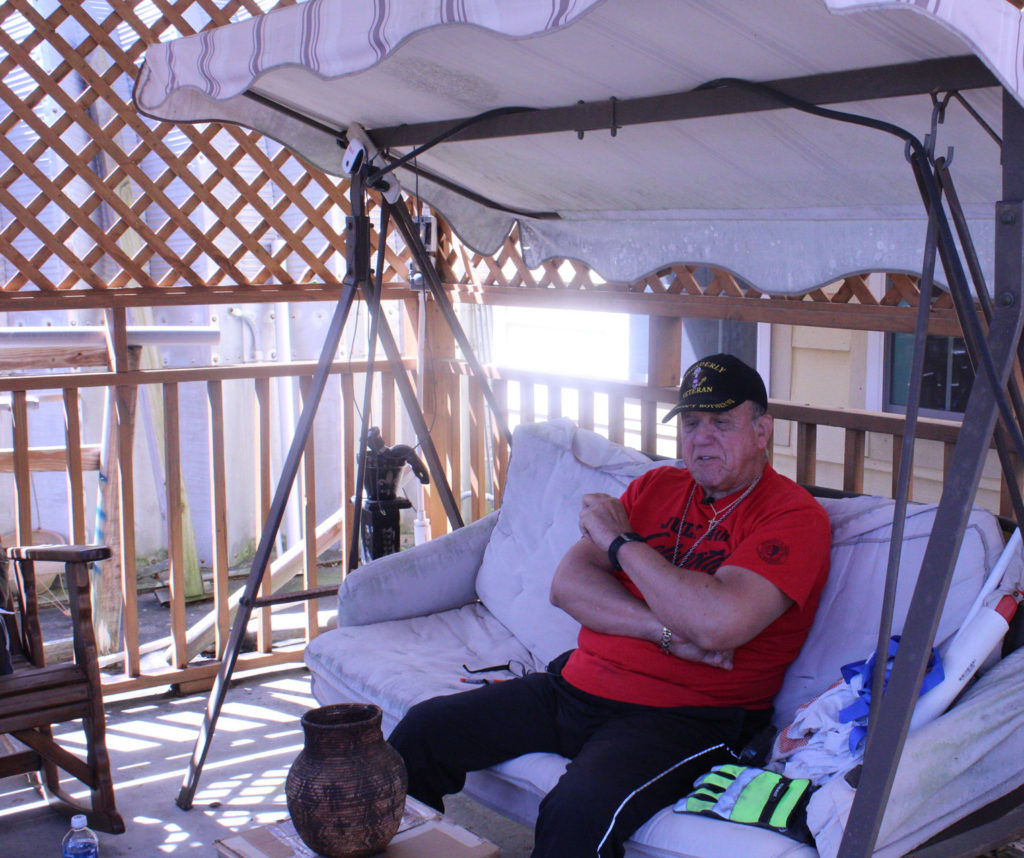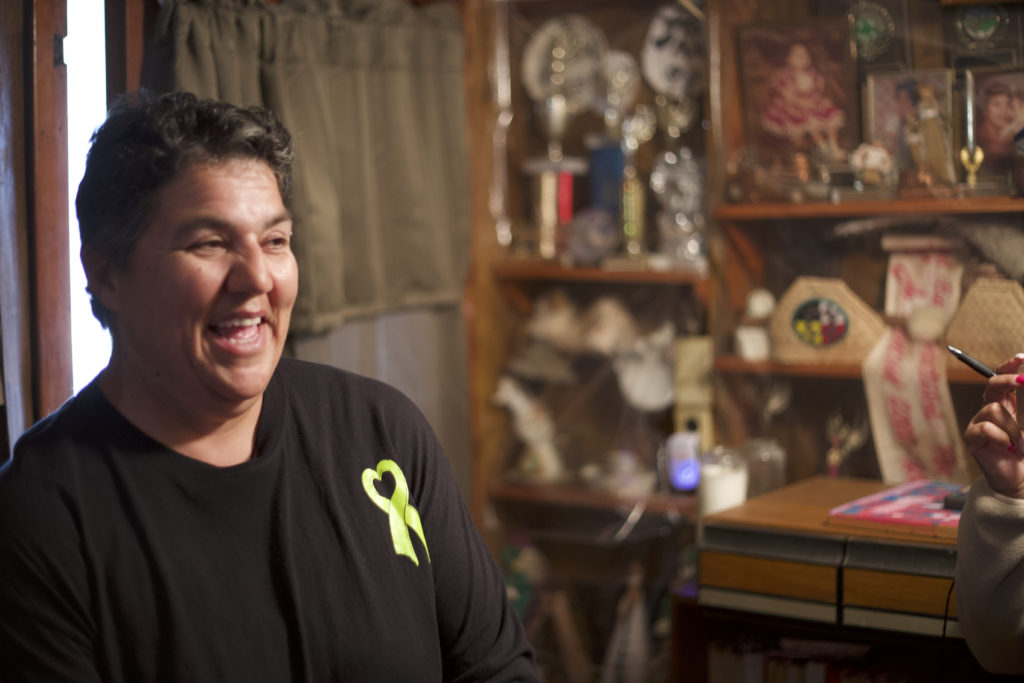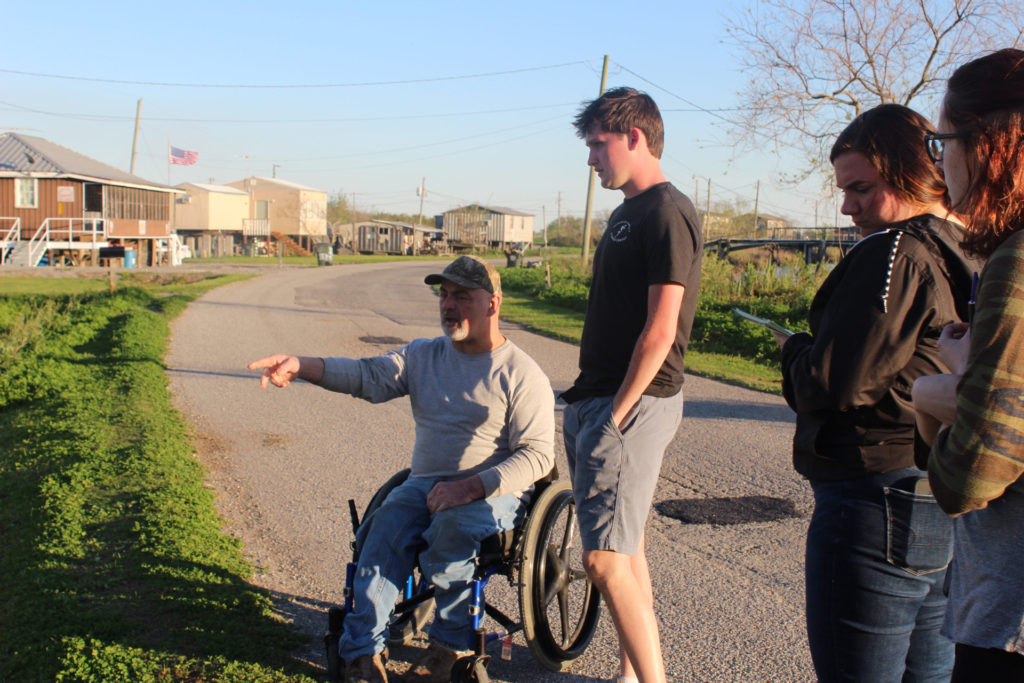Most of the members of the Isle De Jean Charles are of the Biloxi-Chitimacha-Choctaw tribe. There are no songs, no outfits, and there has been no Powwow since 2004. The tribe didn’t have any typical traditions to begin with, but still celebrated its heritage nonetheless. Instead, the tribe has more life and community-centered traditions, like getting together on Sundays to go to church and get coffee. A lot of tribal members speak a dialect of French and most of them describe it as their native language. The Chief believes that the tribe was taken in by the French. Throughout the years, the number of tribe members living on the isle began to erode and so did their traditions. A very small amount of tribe members still lives on the Isle. Although their numbers have dwindled, they still remain prideful and resilient. Of the many the things that the isle residents are prideful of and claim, the term “Climate Refugee” is not one of them.
“No, no we have a place to stay, we all have homes,” said Chief Albert Naquin.

When asked about how he felt about the term “climate refugee,” Naquin’s calm and optimistic demeanor quickly changed. Naquin disagrees with the term because it implies that his people are leaving their country, which they are not. Although the chief dislikes the fact that his people fall under the term, most of his worries are towards the Census. Naquin is fighting for his people to be recognized to have better federal recognition.
“Maybe the census doesn’t like me anymore,” said Naquin. “We just want to be counted.”
The term is widely used in the media, and it pops up almost everywhere, but no one really knows the opinion of the isle residents. A “Climate Refugee” is someone that has to flee their homes due to change of livelihood in their environment. Which is what is happening with the Isle members, but none of them accept the term. Another isle resident, Cookie Naquin, who has spent most of her life living in the isle, also resents the term.
“I don’t like it,” said Cookie. “I am a person just like them.”

While the Chief’s worries are on the Census, Cookie’s worries are on what’s going to happen to livelihood of the people once the isle is gone. Cookie is slowly started to accept the reality that the isle doesn’t have much time to survive flooding, but she believes that Houma, LA will also suffer the same fate. She feels that most of the troubles that they have are because of the oil dredging going on in the area. Cookie feels resentment towards most Americans because of the elongated mistreatment of her people.
Cookie reminisced about the times when her tribe used to thrive from the environment around them. She mentioned that isle members used to fish for a living, had livestock, and an abundance of land. Now the land is constantly eroding with no space for livestock or the hundreds of people that used to live there.
“It feels like someone is pulling your heart out,” said Cookie.
The only viable income that most of the Isle residents have is working for oil companies. Cookie works PHI, Inc. which is a helicopter company the refuels helicopters that go to the oil dredges.
54-year old Christ Brunet is an isle resident who believes that the media is blowing the word “Climate Refugee,” out of proportion. On Brunet’s front lawn sat a big white porcelain toilet with cardboard taped on to it that said, “Climate Change is Not Worth…”. While Brunet didn’t dismiss the fact that climate change is real, he believed that the main issue that isle deals with is erosion.

“The big ol’ talk is climate change, climate change, climate change,” Brunet said.
While Brunet felt that the issues that the isle is facing are due to natural causes, he is hesitant on placing any blame on the oil industry. Brunet is weighing relocating to the new community, but he dislikes the idea of giving up his current home.
Most of the tribal members share the same sentiment, they all want to stay in the place that they call home.